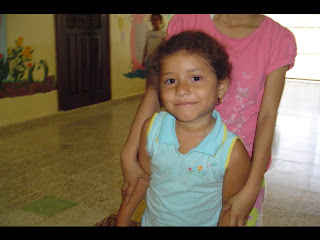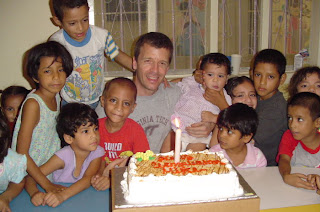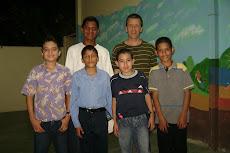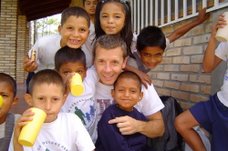The following is from an article in Honduras This Week which provides some insight to the problems here:50% of the Honduran population is 15 years old and younger (as of January 2006). The average woman is 15 years old when she gives birth to her first child. In 2006, 80% of all birth certificates issued in the country did not name a father. These are some of the disturbing facts that will be highlighted in a live, online “web briefing” conducted by projecthonduras.com, in partnership with the University of Iowa, on Friday, August 24.
Reasons for this lack of family structure in Honduras include: large numbers of men (and an increasing number of women) leaving for the United States and Spain; high unemployment rates and underemployment; an overall failing of the moral structure of the society in that there is no longer any stigma to having a child outside of marriage; lack of education; lack of a loving, supportive environment within the family which leads to young women having babies in order to have someone to love; and a pervasive macho attitude of wanting to have as many children by as many women as possible. Hondurans (in lower economic levels) tend to think of children as financial assets, rather than as liabilities. In the U.S., Europe, and among wealthier populations in Honduras, it is understood that having a child entails a level of financial burden (education, food, clothing, etc.). The poor tend to think of a child as a financial retirement plan... the child will be expected to support the mother when she is too old to work. Maquilas (garment factories) generally employ women ages 18 to 30. At 30, women are considered too old, too slow, and are dismissed. So, if a woman in Honduras has her first child when she is 15, by the time she “retires” her child will be ready to start working. Most women over 30 tend to sell tortillas on the streets or do other things from their homes rather than work for a company. They rely on their children to work and provide for them. It is this attitude that leads women to want as many children as possible.
The consequences of the lack of family structure include child abuse. This abuse, especially sexual abuse, is the most common problem. Men who are not related to the children in the home feel entitled to use them sexually. Women are hesitant to file police reports or try to protect their children for fear of reprisals from the men, especially physical violence (now estimated to exist in more than 30% of all homes) and abandonment. Serial “marriages” are common with three or four men coming into the home over the years and fathering their “own” children. This leaves the other children at greater risk of abandonment and abuse. In addition, there exists a very weak legal system in Honduras, a lack of police in the communities, a high level of violence, few options for the courts to place abused children in safe environments, and pressure from the government to return children to their families. This, in an effort to not present statistics to the international community that reflect the true situation of the children. Each time a child is removed from the family unit, the “count” goes up on the problem of children at social risk, and the “image” of Honduras is damaged.















